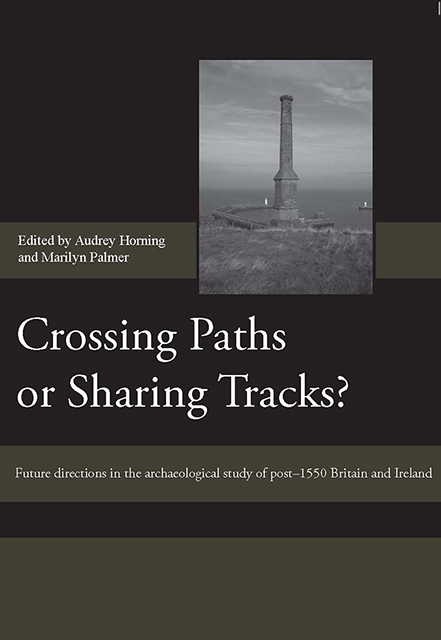 Crossing Paths or Sharing Tracks?
Crossing Paths or Sharing Tracks? Rematerialising Metropolitan Histories? People, Places and Things in Modern London
Published online by Cambridge University Press: 07 March 2023
Summary
In recent years historians have begun to show renewed interest in studying ‘the material’ dimensions to urban life. This shift has opened up a space for new dialogues between historians and post-medieval archaeologists working on British cities. It off ers the potential for reassessing approaches to studying the urban past and for experimenting withfresh methodologies. Noting that archaeological perspectives have been largely absent from recent historical accounts of the modern metropolis, in this chapter we explore the potential for pursuing collaborative research that fuses archaeological evidence and thinking withother forms of historical practice to write material histories of London. The discussion divides into three parts. First, we sketch the post-war development of urban post-medieval archaeology in London, and the range of archaeological collections and excavation sites that relate to the Georgian and Victorian city. Second, we consider some of the ways in which the analysis of these sources might be used in interdisciplinary urban historiography, especially in the light of methodological approaches developed in North American and Australian urban archaeology. Third, we present a case study that explores how nineteenth-century household archaeologies in London might be developed, examining some of the complexities and challenges of integrating archaeological methods into the study of households and localities in the nineteenth-century metropolis. In conclusion we consider the prospects for the development of interdisciplinary approaches to the material remains of London’s modern past.
INTRODUCTION
Over the course of the 17th, 18th and 19th centuries, London developed to become one of the largest and most powerful cities in the world. According to some recent historical accounts, it can be characterised as a birthplace of modernity: a city where new identities, practices and power relations were forged and experienced. London was increasingly bound into mercantile, political and social networks that were global in scope, yet at the same time its local landscapes became evermore distinctive, as dramatic demographic and economic changes transformed the city. Whether as a place of shocking social and material inequality, as a centre of industrial production, as a nexus of imperial power and commerce, or as a site for experiencing new forms of consumption, leisure and pleasure, the metropolis has long provided historians with a means of peering into and making sense of much of that which is deemed to constitute modern life.
- Type
- Chapter
- Information
- Crossing Paths or Sharing Tracks?Future directions in the Archaeological Study of Post-1550 Britain and Ireland, pp. 323 - 350Publisher: Boydell & BrewerPrint publication year: 2009
- 8
- Cited by


